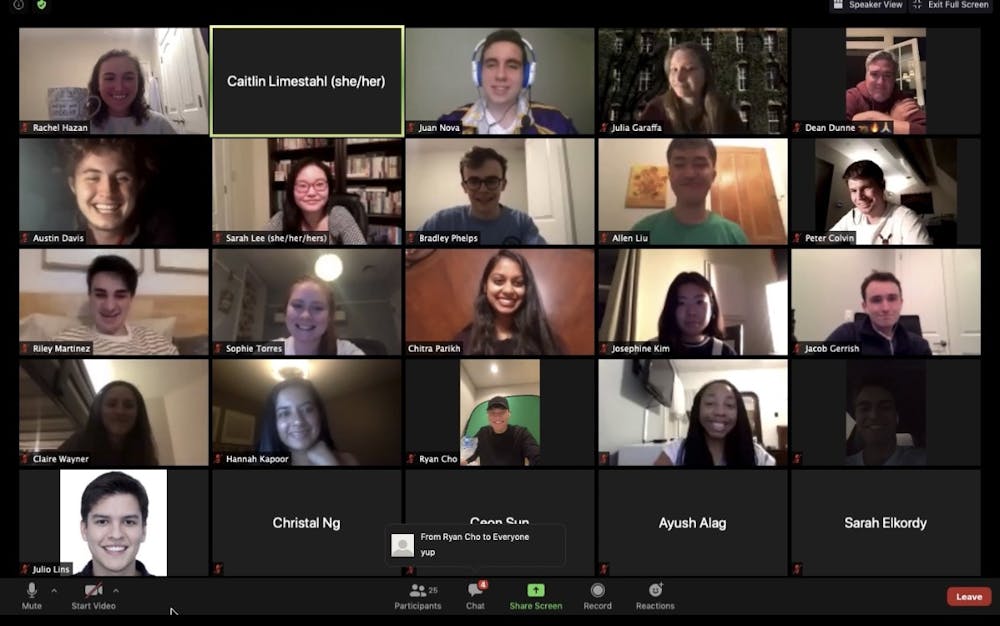At Sunday’s Undergraduate Student Government (USG) meeting, Regan Crotty ’00, Director of Gender Equity and Title IX administrator, reviewed the University’s modified Title IX Sexual Harassment Policy and University Sexual Misconduct Policy.
The University revised both policies after the U.S. Department of Education (DOE) announced new Title IX regulations, which, among other measures, narrow the definition of “sexual harassment” and require live hearings in Title IX proceedings, in May. As a recipient of federal funding, the University was required to comply.
Vice Provost for Institutional Equity and Diversity Michele Minter previously called the DOE regulations “problematic in a number of ways.” In June, she told USG members, “In general, we think they’re going to have a chilling effect on people’s willingness to go through the [Title IX] process.”
On Sunday, Crotty noted that “[c]onduct that violated University policy last year will continue to violate University policy this year but ... may be adjudicated under two different policy procedures.”
“Even though under the new regulations we have the ability to say, ‘we’re not adjudicating things that happened at the eating clubs or in a study abroad program,’ that’s completely contrary to our values and to our community expectations,” Crotty said.
“We set things up so that we would make sure that anything covered last year would still be covered this year,” she continued.
Where the behavior occurs will determine which policy the University applies.
Both policies will accommodate live hearings, rather than written interviews. Investigators will have the opportunity to question the complainant, respondent, and witnesses. If the questioning is held on campus, the complainant and respondent will never be in the same room together.

The policies will grant the complainant and respondent “pre-determined financial resources to assist them in engaging attorneys to serve as their advisors.” The cap amount for these resources has yet to be determined. Both policies will have a retired judge serve as a Presiding Hearing Panelist and the option of an informal resolution process in lieu of a formal proceeding.
The informal resolution process “must be consented to by both parties, must be approved by the Title IX Coordinator, [and] does not appear on the respondent’s disciplinary record.” The agreement is binding once signed by both parties.
When an informal resolution is reached, possible agreed-upon options may include: Skewed No Contact Order, housing charges, restrictions from activities/events, and agreement to participate in education program(s) or the Community Integrity Program.
Crotty noted that though many students are away from campus, the policies will cover any misconduct that occurs online, whether it be virtual harassment or stalking. If alleged misconduct occurs between students who are living together away from campus, the University will individually assess the case to determine whether it has jurisdiction.

The University’s revised policies have already received approval from the full faculty and Council of the Princeton University Community (CPUC).
The meeting was held via Zoom at 9:30 p.m. on Sunday, Sept. 20.








